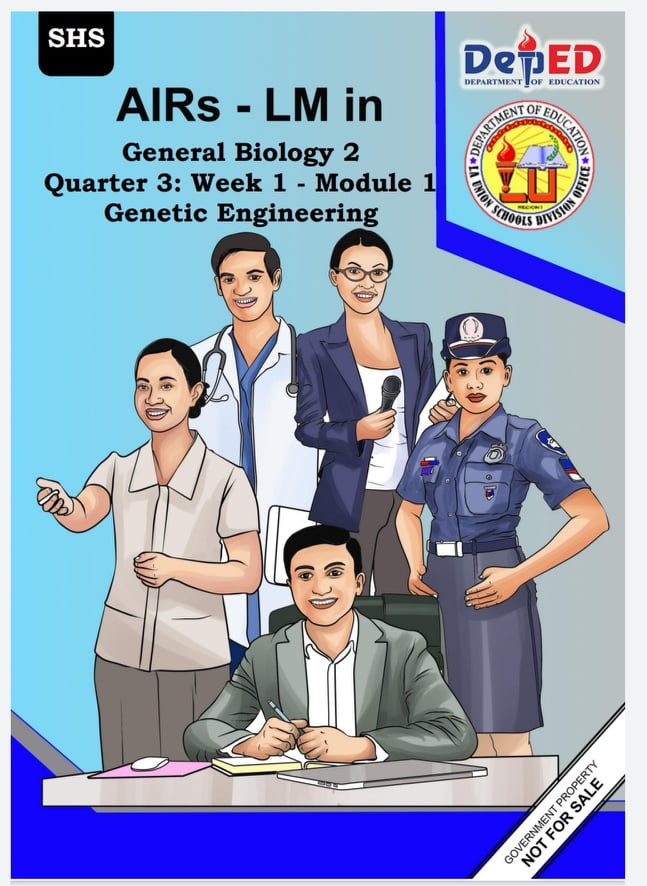
Understanding Culture, Society, and Politics
This course uses insights from Anthropology, Political Science, and Sociology to develop student's awareness of cultural, social, and political dynamics, and sensitivity
to cultural diversity; provide them with an understanding of how culture, human agency, society, and politics work; and engage them in the examination of the
country’s current human development goals. At the end of the course, students should acquire ideas about human cultures, human agency, society, and politics;
recognize cultural relativism and social inclusiveness to overcome prejudices; and develop the social and cultural competence to guide their interactions with groups,
communities, networks, and institutions.

General Biology 2
The central Dogma of molecular biology explains the flow of genetic information and the molecular mechanism in understanding how genotype translate to phenotype, it became apparent then that changing an organismal trait is possible by altering its genetic make-up known as genetic engineering.
You have learned already from your grade 8 Biological science about the
Central Dogma of Molecular Biology which covers the lesson on nucleic acid and its types- DNA and RNA and their structures and the flow of genetic information from genes to proteins through the process of DNA replication, transcription, translation in order to make an enormous variations of proteins. You have learned also about heredity and variation wherein traits are being inherited by the off springs from their parents and that desirable and undesirable traits of an off springs including diseases can be inherited from their parents. But the possibility to enhance a good trait will be possible now through the process of genetic engineering.
This module will make you understand more about genetic engineering
including the processes and techniques used and the different applications of genetic engineering.